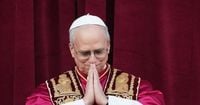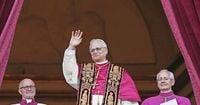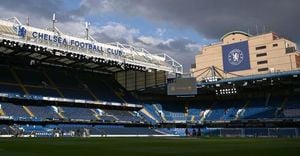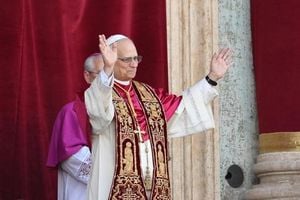In a historic moment for the Catholic Church, 69-year-old Robert Francis Prevost has been elected as the first American Pope, taking the name Leo XIV. This momentous election occurred on May 8, 2025, after four rounds of voting in the Sistine Chapel, marking a significant milestone in the church's leadership.
The election of Prevost, who leads approximately 1.4 billion Catholics worldwide, follows the death of his predecessor, Pope Franciscus, on April 21, 2025. The conclave, which began with 133 cardinals, was noted for its swift process, being the fastest since 1939. At 6:09 PM local time on May 8, white smoke billowed from the Sistine Chapel chimney, signaling the election of a new pope. An hour later, Prevost appeared on the balcony of St. Peter's Basilica, greeting the crowd with the words, "Peace be with you all."
Prevost's election was somewhat unexpected, as his name had not been widely circulated among Vatican watchers prior to the conclave. However, the National Catholic Reporter had identified him as a potential candidate, and his name gained traction in the final days leading up to the vote. Prevost's pragmatic approach and experience as a bridge builder between different cultures and church traditions were significant factors in his selection.
Having spent decades working as a missionary in Peru, Prevost brings a wealth of experience to the papacy. He was appointed as a cardinal in 2023 and served as the head of the Dicastery for Bishops under Pope Franciscus, a position that involves advising the pope on bishop appointments. This role positioned him as a close ally of the late pope, who was known for his progressive stance on various issues.
Prevost's background as a Chicago native and his fluency in Spanish, Italian, French, and Portuguese enable him to connect with a diverse global Catholic audience. His ability to communicate across cultures is seen as an asset in addressing contemporary issues facing the church, including the growing Catholic population in the Global South.
During his initial address from the balcony, Prevost emphasized the importance of the church's mission, stating that it must engage in dialogue and build bridges with different communities. He acknowledged the complexities of the current geopolitical landscape and the need for the church to adapt to the changing world.
Prevost's appointment comes at a time when the Catholic Church is grappling with various challenges, including ongoing discussions about LGBTQ+ rights and the role of women within the church hierarchy. While he has not publicly articulated his stance on these issues, his election has sparked interest in how he will navigate these sensitive topics.
In previous statements, Prevost has expressed concerns about the influence of Western media on the church's teachings, particularly regarding LGBTQ+ issues. In a 2012 interview, he criticized the "sympathy for ideas and practices that go against the Gospel," highlighting his traditional views on family and sexuality. This has led to speculation about how his papacy will address the evolving conversations around these issues.
Despite these challenges, Prevost's pragmatic approach and commitment to serving the marginalized align with the legacy of his predecessor, Pope Franciscus. The late pope was known for his efforts to uplift the poor and advocate for social justice, and many observers hope that Prevost will continue this mission.
As the 267th pope in history, Prevost has a unique opportunity to shape the future of the Catholic Church during a pivotal time. His ability to engage with a diverse range of Catholics and address pressing global issues will be closely watched by both supporters and critics alike.
The election of Prevost has also garnered attention from political leaders. U.S. President Donald Trump congratulated the new pope via his social media platform, calling it a "great honor" for the United States to have its first pope. This acknowledgment reflects the significance of Prevost's election not only for the Catholic Church but also for U.S. relations with the Vatican.
Prevost's papacy is expected to focus on fostering unity within the church and addressing the needs of a rapidly changing world. As he embarks on this new journey, many are hopeful that his leadership will bring a renewed sense of purpose and direction to the Catholic Church.
In summary, Robert Francis Prevost's election as Pope Leo XIV marks a historic moment for the Catholic Church, reflecting a shift towards a more diverse and inclusive leadership. His pragmatic approach and commitment to dialogue may pave the way for addressing contemporary challenges while honoring the church's rich traditions.





